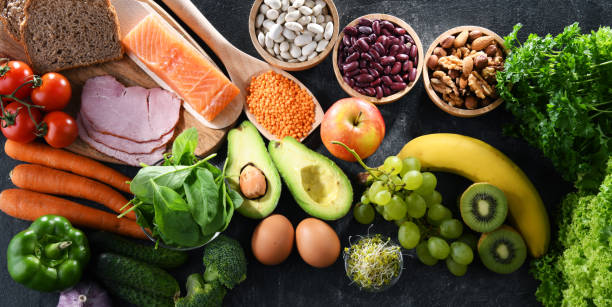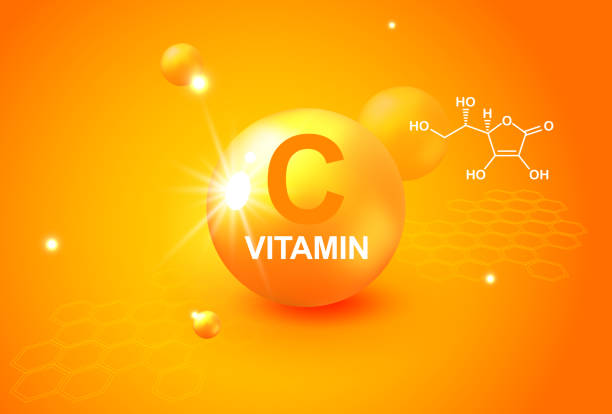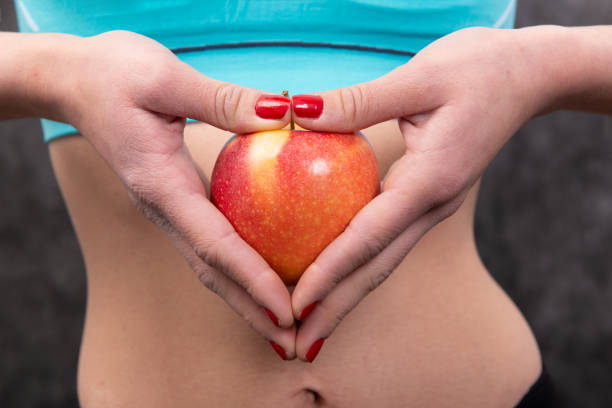Introduction
today in this article we discuss about Nutrition for Expecting Mothers: Building Blocks for a Healthy Pregnancy. Pregnancy is a time when it is important to take care of both your health and the health of your baby. In the meantime, both you and your baby will stay healthy and strong as long as your body needs the extra nutrients it needs. This article will provide you with baby nutrition tips that are essential for expectant mothers to have a smooth and healthy pregnancy.
1. Folate: Essential Vitamin
Folate, also known as vitamin B9, plays an important role during pregnancy. It helps in the development of the baby’s brain and spine. Folate deficiency can cause problems such as neural tube defects. Make whole grains, leafy greens, citrus fruits, and fortified grains the staples of your diet.
2. Iron: Blood health and energy

Iron supports blood production in your body and maintains energy levels. During pregnancy, you need more iron because your body needs to make extra blood. Red meat, poultry, and beans contain iron, which helps you avoid fatigue.
3. Calcium: Building strong bones
Calcium is essential for the development of your baby’s bones and teeth. It also keeps your bones and teeth strong. Dairy products, green leafy vegetables, and fortified non-dairy milk are good sources of calcium that help you meet your needs for the important mineral.
4. Vitamin D: Bone health and the immune system
Vitamin D helps with calcium absorption and supports your immune system. Its deficiency can lead to bone problems and immune problems. Sun exposure and fortified foods, such as orange juice and cereals, are good sources of vitamin D.
5. Protein: Building blocks for baby
Protein is essential for the growth and development of the baby. It helps in building body tissues and organs. You and your baby will stay healthy as long as you include protein-rich foods like lean meats, fish, eggs, and beans in your diet.
6. Omega-3 Fatty Acids: Brain and Eye Health
Omega-3 fatty acids are essential for the development of the baby’s brain and eyes. These essential fats, found in fatty fish like salmon and walnuts, should be a staple of your diet during pregnancy. Omega-3s are sufficient for a child’s cognitive development and visual acuity.
7. Vitamin C: Boosts immunity

Vitamin C strengthens your immune system and improves iron absorption. Fruits such as oranges, strawberries, and bell peppers are good sources of vitamin C. Daily intake of vitamins can help protect you from infections and support overall health.
8. Fiber: Digestive health
Fiber supports digestive health during pregnancy and helps prevent constipation. Fiber is found in whole grains, fruits, and vegetables. You can keep your digestive system healthy by adding foods to your diet.
9. Hydration: Stay well hydrated
Hydration is also very important during pregnancy. Drinking water keeps your body hydrated and supports the production of amniotic fluid. Drink plenty of water every day, and add hydrating foods, such as fruits and vegetables, to your diet.
10. Avoid unhealthy fats
It is important to work trans fats and saturated fats out of your diet. These fats are not good for heart health and can also cause weight gain. Avoiding processed foods and fried items and avoiding healthy fats, such as avocados and nuts, should be chosen.
11. Safe food management
It is also important to take care of food safety during pregnancy. Raw meat and unpasteurized dairy products should be avoided as you can transmit harmful bacteria. Following proper cooking and hygiene practices is important for your and your baby’s health.
12. Managing caffeine intake
Caffeine should be consumed in moderation. Too much caffeine increases the risk of pregnancy complications and low birth weight. It’s best to limit your intake of coffee and caffeinated beverages and opt for healthier alternatives, such as herbal teas.
13. Abstaining from alcohol and tobacco

Alcohol and tobacco should be avoided during pregnancy. These substances can be harmful to the child’s development and can cause a number of health problems. Making healthy lifestyle choices will benefit you and your baby.
14. Portion control and balanced meals
A balanced diet and portion control are essential during pregnancy. Excess weight gain or the risk of gestational diabetes from overeating is more difficult. Follow healthy portions and balanced meals to keep you and your baby healthy.
15. Consulting a nutritionist
Every pregnancy is unique, so consulting a nutritionist is also important. A nutritionist can provide you with a personalized diet plan by understanding your specific needs. Your plan will help ensure your health and baby’s growth.
The result
Taking care of nutrition during pregnancy is important for the health of both you and your baby. By following the above nutrients and healthy eating habits, you can make your pregnancy journey healthy and smooth. Having variety and balance in your diet is important to take care of your health and the health of your baby.
